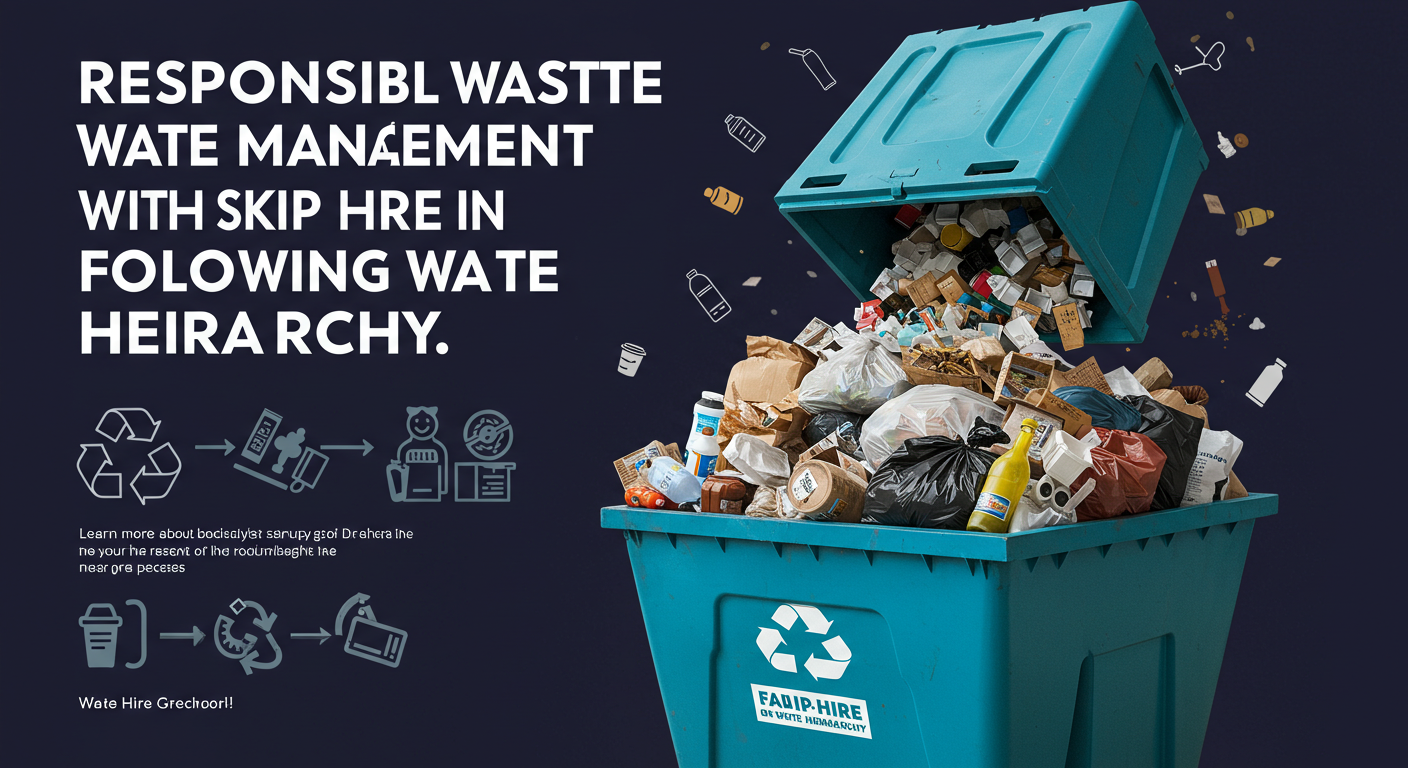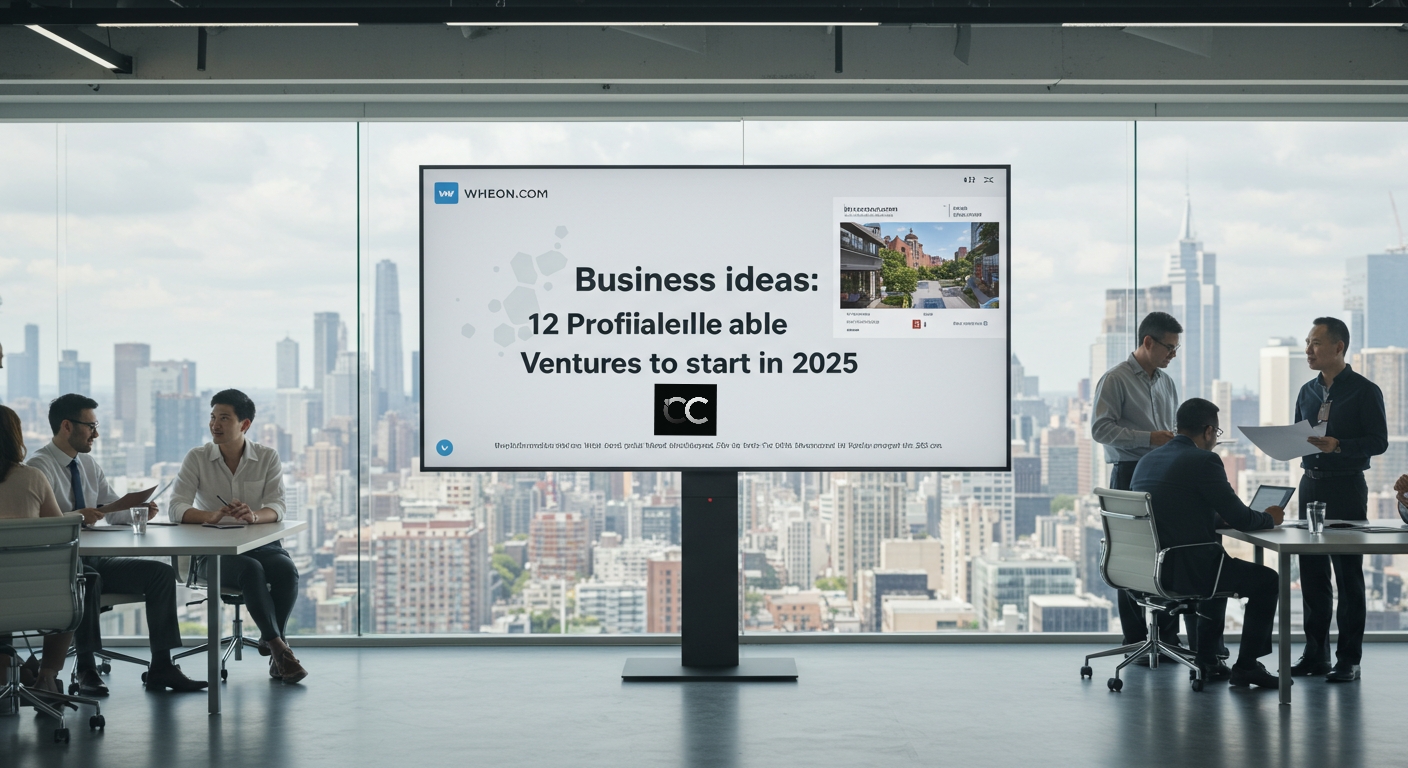Understanding The Waste Hierarchy: Reduce, Reuse, Recycle & Dispose
In an era where urban landscapes evolve rapidly, so does the volume of waste generated by households, businesses, and industries. From discarded packaging to construction debris and industrial waste, every item thrown away carries an environmental footprint. But what if waste wasn’t just waste? What if it was managed efficiently, minimising harm and maximising sustainability? This is where the waste hierarchy—Reduce, Reuse, Recycle, and Dispose—guides responsible waste management. By following this structured approach, Deptford’s residents and businesses can ensure that waste is handled thoughtfully, reducing landfill reliance and promoting a greener, cleaner future.
Reduce: The First Step To Minimising Waste
The most effective way to manage waste is to prevent it from being created in the first place. By making conscious choices—such as opting for reusable products, reducing packaging waste, and cutting down on single-use plastics—individuals and businesses can significantly lower the amount of waste that enters the system. Waste collection services in Deptford support these efforts by offering tailored solutions to help businesses implement sustainable practices, reducing the need for excessive waste production.
In industries like construction and manufacturing, reducing waste means more intelligent material planning and efficient resource use. Site waste management is crucial here, ensuring that materials are optimised rather than wasted. By taking proactive steps to reduce unnecessary waste, we contribute to a more sustainable future while cutting costs and improving efficiency.
Reuse: Giving Waste A Second Life
Not everything that is discarded needs to be thrown away. Reusing materials extends their lifespan, reducing the need for new resources and minimising waste accumulation. From bulk waste removal initiatives that salvage usable materials to donation drives for furniture and appliances, reusing items prevents perfectly good resources from ending in landfills.
For businesses, waste management solutions that focus on reuse can make a significant impact. Many organisations in Deptford now prioritise refurbishing office equipment, repurposing building materials, and implementing circular economy strategies that ensure waste finds a second life. Even households can play a part—donating clothes, upcycling furniture, and refilling containers contribute to responsible waste disposal.
Recycle: Transforming Waste Into New Resources
Recycling bridges the gap between waste and resource recovery. Instead of sending materials to landfill, they can be processed, reformed, and reintroduced into production cycles. Rubbish removal services in Deptford ensure that paper, plastic, glass, and metal waste are collected separately, making it easier for recycling plants to process and repurpose these materials.
Industries producing large quantities of recyclable waste—such as construction waste removal and industrial waste disposal—benefit from debris collection services that divert materials like concrete, metal, and wood to recycling facilities. This not only conserves raw materials but also significantly reduces greenhouse gas emissions associated with manufacturing from virgin resources.
By working with eco-friendly waste clearance services, individuals and businesses can ensure that recyclable materials are sorted, processed, and reintegrated into production chains, promoting a sustainable waste cycle.
How Waste Collection Services In Deptford Support Sustainability
In the bustling streets of Deptford, where modern developments meet historic charm, the need for efficient waste management solutions has never been greater. Every day, tonnes of waste—from household rubbish to construction debris and industrial waste—are generated, posing environmental challenges if not handled responsibly. Professional waste collection services play a pivotal role in ensuring that waste is not simply discarded but managed with sustainability at its core. Through segregation, responsible disposal, and recycling efforts, these services help reduce landfill waste, lower carbon footprints, and promote eco-friendly waste clearance.
The Role Of Professional Waste Collection Services In Responsible Waste Disposal
Proper waste disposal is more than just getting rid of unwanted items—it’s about ensuring that waste is processed in a way that minimises harm to the environment. Waste collection services in Deptford provide structured solutions that categorise waste into recyclable, reusable, and non-recyclable materials, ensuring that as little as possible ends up in landfills.
For businesses and households alike, these services streamline waste handling through scheduled pickups, responsible sorting, and environmentally conscious disposal methods. Whether it’s bulk waste removal after a home renovation or routine rubbish removal services, having a dedicated collection provider means waste is handled ethically and efficiently.
How Waste Collection Services Ensure Proper Waste Segregation
One of the key aspects of sustainable waste management is segregation at the source. Professional waste collection services in Deptford play a crucial role in sorting materials before they reach landfills, ensuring that valuable resources are recovered and reused.
- Household Waste: Sorted into general waste, recyclables, and compostable materials to prevent contamination.
- Construction Waste Removal: Diverts concrete, metal, and wood for recycling rather than sending them to landfill.
- Industrial Waste Disposal: Ensures hazardous and non-hazardous waste is treated according to environmental regulations.
- Debris Collection Services: Manage heavy waste clearance effectively to reduce ecological impact.
By encouraging residents and businesses to follow site waste management practices, these services ensure that waste is processed correctly from the outset, paving the way for eco-friendly waste clearance and long-term sustainability.
Contributing To A Greener Future With Sustainable Waste Management Solutions
Beyond simple waste removal, waste collection services in Deptford actively contribute to environmental sustainability by reducing landfill reliance, promoting recycling, and supporting local green initiatives.
- Recycling Infrastructure: Many services collaborate with recycling plants to ensure materials like paper, glass, plastic, and metal are reprocessed into new products.
- Waste-to-Energy Initiatives: Some providers convert non-recyclable waste into renewable energy, helping to power homes and businesses sustainably.
- Encouraging Eco-Conscious Behaviour: Businesses and residents are educated on responsible waste disposal through awareness campaigns and sustainable waste handling practices.
With a growing focus on environmentally responsible waste disposal, waste management solutions in Deptford are evolving to meet the demands of a greener future. By integrating professional waste collection services, individuals and businesses can ensure that their waste is managed ethically, efficiently, and sustainably, protecting the environment for future generations.
Recycling Solutions In Deptford: Giving Waste A Second Life
Every discarded item tells a story—whether it’s a glass bottle from last night’s gathering, an old newspaper, or construction debris from a recent renovation. But in a world where waste continues to grow at an alarming rate, simply throwing things away is no longer an option. Recycling offers a second life to materials, reducing the strain on natural resources and minimising environmental impact. In Deptford, recycling is more than just a responsibility—it’s a sustainable commitment that aligns perfectly with the waste hierarchy, ensuring that materials are repurposed, reused, and reintroduced into the production cycle. With access to waste collection services, bulk waste removal, and eco-friendly waste clearance, residents and businesses can play a vital role in protecting the environment.
The Importance Of Recycling And Its Role In The Waste Hierarchy
At the heart of responsible waste disposal lies the principle of recycling—an essential step in the waste hierarchy that prioritises reducing landfill waste and conserving natural resources. Rather than treating waste as an endpoint, recycling transforms it into new, usable materials, reducing the need for raw material extraction and lowering carbon emissions.
For businesses generating industrial waste disposal or construction waste removal, recycling ensures that materials like metal, wood, and concrete are repurposed rather than dumped. Similarly, for households, simple acts like sorting plastics, glass, and paper contribute to sustainable waste management solutions, preventing valuable materials from ending up in landfills.
By embedding recycling into everyday waste disposal services, Deptford’s residents and businesses can create a more circular economy where waste becomes a resource rather than an environmental burden.
Available Recycling Facilities And Services In Deptford
To make recycling accessible and efficient, Deptford offers a range of waste collection services, debris collection services, and heavy waste clearance options designed to manage different types of recyclables. These facilities ensure that waste is sorted, processed, and reintegrated into production chains, reducing environmental impact.
Household Recycling Centres
- Residents can drop off paper, plastics, metals, and glass for processing.
- Eco-friendly waste clearance options help households responsibly dispose of electronics, batteries, and old appliances.
Commercial Waste Management Solutions
- Businesses and industries can access tailored waste management solutions, ensuring bulk waste removal follows sustainability guidelines.
- Industrial waste disposal services help factories and manufacturing units recycle scrap materials, packaging waste, and outdated equipment.
Construction And Site Waste Management
- Construction waste removal services divert bricks, concrete, and timber away from landfills by recycling them into new building materials.
- Debris collection services sort materials at source, ensuring recyclable components are recovered efficiently.
Local Recycling Initiatives And Awareness Campaigns
- Community-driven programmes encourage responsible waste disposal by educating residents about the benefits of waste segregation and recycling.
- Businesses partnering with recycling services gain recognition for sustainable waste management practices, enhancing their environmental credentials.
By leveraging Deptford’s recycling facilities and making informed choices about waste disposal, residents and businesses can contribute to a cleaner, greener community while ensuring that waste finds a second life instead of a landfill site.
Reducing Waste At The Source: Practical Tips For Homes & Businesses
Imagine a world where waste is not an inevitable byproduct of daily life but a challenge to be tackled at its root. In Deptford, where urban living meets a growing commitment to sustainability, reducing waste at the source is the most effective way to lower landfill dependency, conserve resources, and minimise environmental impact. While waste collection services, bulk waste removal, and recycling facilities play a crucial role, the true power of responsible waste disposal begins with individuals and businesses making conscious choices. By adopting simple yet impactful waste reduction strategies, households and organisations can limit waste generation, cut unnecessary consumption, and contribute to a cleaner, greener future.
Actionable Steps To Minimise Waste Generation
Preventing waste before it even enters the cycle is key to sustainable waste management solutions. Whether in homes or businesses, small, consistent changes can lead to significant reductions in waste output. Here’s how:
Mindful Purchasing And Consumption
- Buy Only What You Need: Avoid over-purchasing groceries, office supplies, and packaging materials to reduce unnecessary waste.
- Choose Minimal Packaging: Opt for products with recyclable or compostable packaging to lower rubbish removal services demand.
- Support Sustainable Brands: Purchase from companies that use eco-friendly packaging and responsible waste disposal practices.
Embrace Reusable Alternatives
- For Homes: Switch to reusable shopping bags, stainless steel bottles, cloth napkins, and refillable cleaning products.
- For Businesses: Implement sustainable office supplies, reusable coffee cups, and paperless invoicing to reduce waste generation.
- For Restaurants And Cafés: Use compostable containers and reusable cutlery instead of disposable plastic.
Smart Meal Planning And Food Waste Reduction
- Plan Weekly Meals: Reducing food waste lowers the need for heavy waste clearance and minimises methane emissions from landfills.
- Compost Food Scraps: Instead of discarding fruit peels and leftovers, turn them into compost for gardens and green spaces.
- Donate Excess Food: Businesses in hospitality can partner with local charities to redistribute surplus food rather than discard it.
How Businesses And Households Can Reduce Their Environmental Footprint
Sustainability starts at home and extends to workplaces. By integrating waste reduction measures, households and businesses in Deptford can actively contribute to environmental preservation while also cutting operational costs and improving efficiency.
For Homes Practical Waste Reduction Tips
Every household in Deptford plays a crucial role in reducing waste at the source, ensuring that daily habits contribute to a cleaner and greener environment. While waste collection services and recycling facilities provide structured solutions, the most effective way to tackle waste is through preventative actions. Simple lifestyle changes can significantly cut down on rubbish removal services, lessen landfill dependency, and promote eco-friendly waste clearance. Here’s how:
Sort Waste Properly
Effective waste segregation is the foundation of responsible waste management. By separating recyclables, compostable waste, and general waste, households can reduce landfill waste and improve the efficiency of waste collection services.
- Recyclables: Sort paper, plastics, glass, and metal into designated bins for proper processing at recycling facilities in Deptford.
- Compostable Waste: Organic kitchen scraps, such as vegetable peels, coffee grounds, and eggshells, can be composted at home, reducing the need for bulk waste removal.
- General Waste: Only non-recyclable, non-compostable waste should go into general waste bins to avoid contamination.
Opt For Digital Bills & Subscriptions
One of the easiest ways to reduce household waste is by eliminating unnecessary paper usage. With digital solutions now widely available, homes can cut down on paper waste while making their lives more convenient.
- Switch to E-Billing: Opt for digital statements for utility bills, bank statements, and subscription services, reducing reliance on paper.
- Cancel Junk Mail: Unsubscribe from unwanted printed advertisements, catalogues, and direct mailers.
- Use Online Magazines & Newspapers: Instead of purchasing physical copies, subscribe to e-magazines and digital newspapers, reducing the demand for paper production and waste disposal services.
By making these small adjustments, households can lower paper waste, reduce bulk waste collection needs, and contribute to sustainable waste management solutions.
Repair & Repurpose Items
Before throwing away old furniture, appliances, or clothing, consider repairing or repurposing them. This not only extends the lifespan of household items but also minimises landfill waste and reduces the need for heavy waste clearance services.
- Fix & Maintain Appliances: Instead of replacing broken electronics or home appliances, get them repaired by professionals.
- Upcycle Old Furniture: Transform old tables, chairs, or cabinets into creative DIY projects instead of discarding them.
- Repurpose Clothing & Fabrics: Old clothes can be turned into cleaning rags, cushion covers, or even reusable shopping bags, reducing unnecessary textile waste.
- Donate Instead Of Discarding: If an item is still in good condition but no longer needed, donate it to charity shops or local reuse organisations in Deptford.
By focusing on reuse and repair, households can significantly reduce waste generation, extend product lifecycles, and contribute to an eco-conscious waste culture.
Making Waste Reduction A Household Habit
By incorporating these practical waste reduction strategies, homes in Deptford can actively contribute to sustainable waste management solutions. Whether it’s through waste segregation, digital alternatives, or upcycling old items, every effort helps in minimising landfill waste and supporting responsible waste disposal services. Small changes today lead to a more sustainable and waste-conscious future for all.
For Businesses: Sustainable Waste Management Solutions

In an era where sustainability is a priority, businesses in Deptford must take proactive measures to minimise waste at its source and implement efficient waste management solutions. From small offices to large industrial facilities, every organisation generates waste—whether it’s paper, packaging materials, electronic waste, or industrial by-products. By adopting responsible waste disposal practices, businesses can cut costs, enhance operational efficiency, and reduce their environmental impact. Here’s how they can make a difference:
Conduct A Waste Audit
Understanding where and how waste is generated is the first step towards creating an effective waste reduction strategy. Conducting a waste audit helps businesses identify key waste-producing areas and implement targeted waste management solutions.
- Assess Waste Streams: Identify whether waste is coming from packaging, office supplies, production processes, or food waste.
- Measure Waste Output: Track how much waste is generated over a period to pinpoint areas of excessive waste.
- Implement Reduction Strategies: Once waste sources are identified, businesses can reduce bulk waste removal needs by optimising resources, minimising packaging, and streamlining procurement.
A waste audit provides valuable insights that help businesses reduce reliance on rubbish removal services and make smarter waste management decisions.
Implement A Paperless Office System
Switching to a paperless office system is an effective way to minimise waste production while enhancing operational efficiency. Offices generate significant amounts of paper waste, much of which can be eliminated through digital transformation.
- Use Digital Documentation: Encourage employees to use electronic contracts, e-invoices, and cloud storage instead of printed documents.
- Minimise Printing: Set up default double-sided printing and encourage the use of digital notes and presentations.
- Adopt Online Collaboration Tools: Reduce paper reliance by using platforms like Google Drive, Slack, or project management software.
A paperless office not only supports eco-friendly waste clearance but also reduces bulk waste removal needs, ultimately leading to cost savings and environmental benefits.
Partner With Sustainable Suppliers
Businesses can further reduce waste generation by working with eco-conscious suppliers who prioritise recyclable packaging and sustainable materials. By making environmentally responsible choices in procurement, businesses can reduce unnecessary waste before it even enters their premises.
- Choose Recyclable Packaging: Opt for suppliers who use biodegradable or reusable packaging instead of single-use plastics.
- Source Sustainable Office Supplies: Invest in recycled paper, refillable ink cartridges, and eco-friendly cleaning products.
- Encourage Supplier Take-Back Programmes: Some suppliers offer packaging return schemes, allowing businesses to send back materials for recycling or reuse.
Sourcing from sustainable suppliers ensures that businesses contribute to responsible waste disposal while aligning with green business practices.
Utilise Industrial Waste Disposal Services
For industries involved in manufacturing, construction, and production, proper industrial waste disposal services are essential for handling hazardous and non-hazardous waste responsibly.
- Separate Industrial Waste: Ensure metal, wood, plastics, and hazardous materials are categorised properly for safe disposal or recycling.
- Use Specialised Waste Collection Services: Engage with debris collection services and heavy waste clearance providers to ensure proper handling of construction waste removal.
- Comply With Environmental Regulations: Work with certified waste disposal services in Deptford to ensure compliance with local environmental laws.
Conclusion
Responsible waste management is more than just disposing of rubbish—it’s about minimising waste at the source, reusing materials wherever possible, and recycling to reduce environmental impact. By embracing the waste hierarchy—Reduce, Reuse, Recycle, and Dispose, homes and businesses in Deptford can actively contribute to a cleaner, greener future. From sorting household waste properly and adopting digital alternatives to partnering with sustainable suppliers and utilising industrial waste disposal services, every effort towards eco-friendly waste clearance plays a vital role in preserving resources and reducing landfill dependency.
For those looking to manage waste efficiently while prioritising sustainability, skip hire in Deptford offers a convenient and responsible solution. Whether for construction waste removal, industrial waste disposal, or household bulk waste clearance, RMS Skip Hire provides reliable and environmentally conscious waste collection services. With a commitment to responsible waste disposal and recycling, their skip hire services help businesses and residents handle waste in an efficient and sustainable manner, ensuring Deptford remains a clean and thriving community for future generations.




